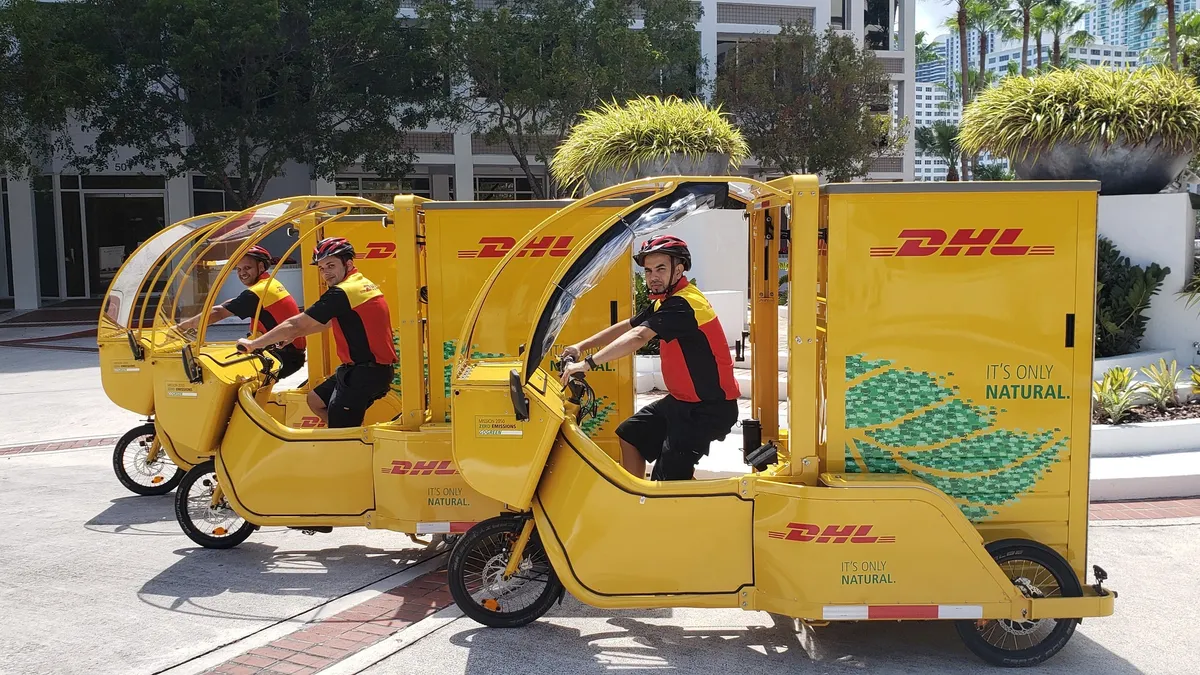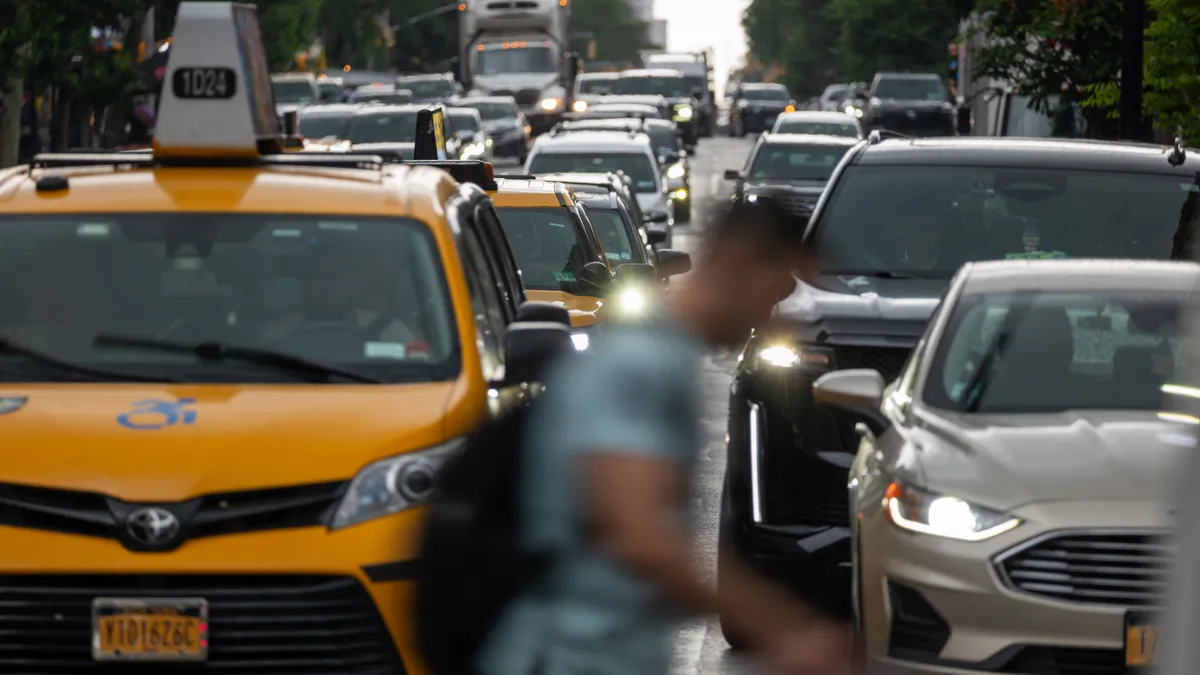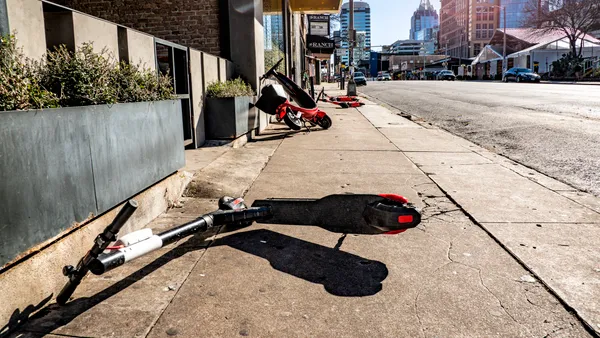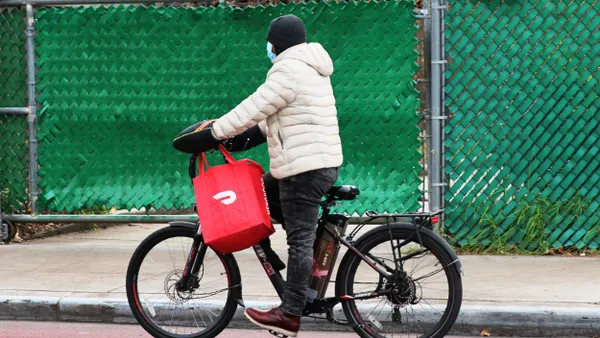Dive Brief:
- The City of Miami has partnered with shipping company DHL Express and mobility logistics hub Reef Technology to pilot four low-powered electric-assist e-cargo bikes that will be used for deliveries across the city.
- The cargo bikes will come equipped with three wheels and a cargo container. They're capable of pulling up to 400 pounds or 60 cubic feet in volume.
- The bikes are anticipated to reduce 101,000 kg of CO2e annually, and should help DHL achieve its short-term goal of "clean pickup and delivery solutions" for 70% of operations by 2025.
Dive Insight:
The pilot aims to benefit congestion and the environment, as each bike takes "one conventional delivery van off the road, reducing road traffic, noise and pollution while still providing fast efficient deliveries for customers," according to the DHL announcement.
A DHL truck will carry up to nine cargo containers for the bikes, which will be sent to the Reef Hub to be hooked up to the bikes for last-mile delivery in the morning. Those same containers can be reloaded in the afternoon for outbound shipments. DHL couriers will also undergo training to operate the bikes to ensure compliance with federal, state and local traffic laws.
Cargo bikes can help virtually any city cut down on growing competition at the curb. New York, which has few parking options available to delivery trucks, recently participated in a pilot with Amazon, DHL and UPS to test cargo bikes as part of a six-month project to reduce congestion, improve air quality and promote pedestrian safety.
The trend of using bikes for last-mile deliveries could continue to grow as cities have also undergone many bike-friendly adjustments since the COVID-19 pandemic began. Cycling has seen a massive uptick, increasing up to 72% in places like Minnesota, as residents seek mobility options that allow them to maintain a safe social distance.
Cities have also supported the widespread adoption of cycling with new tactical urbanism measures like pop-up bike lanes, widened sidewalks and open streets. In fact, Miami-Dade County just converted a stretch of Ocean Drive in South Beach to an open street for pedestrians, a move that could become permanent pending county approval.












